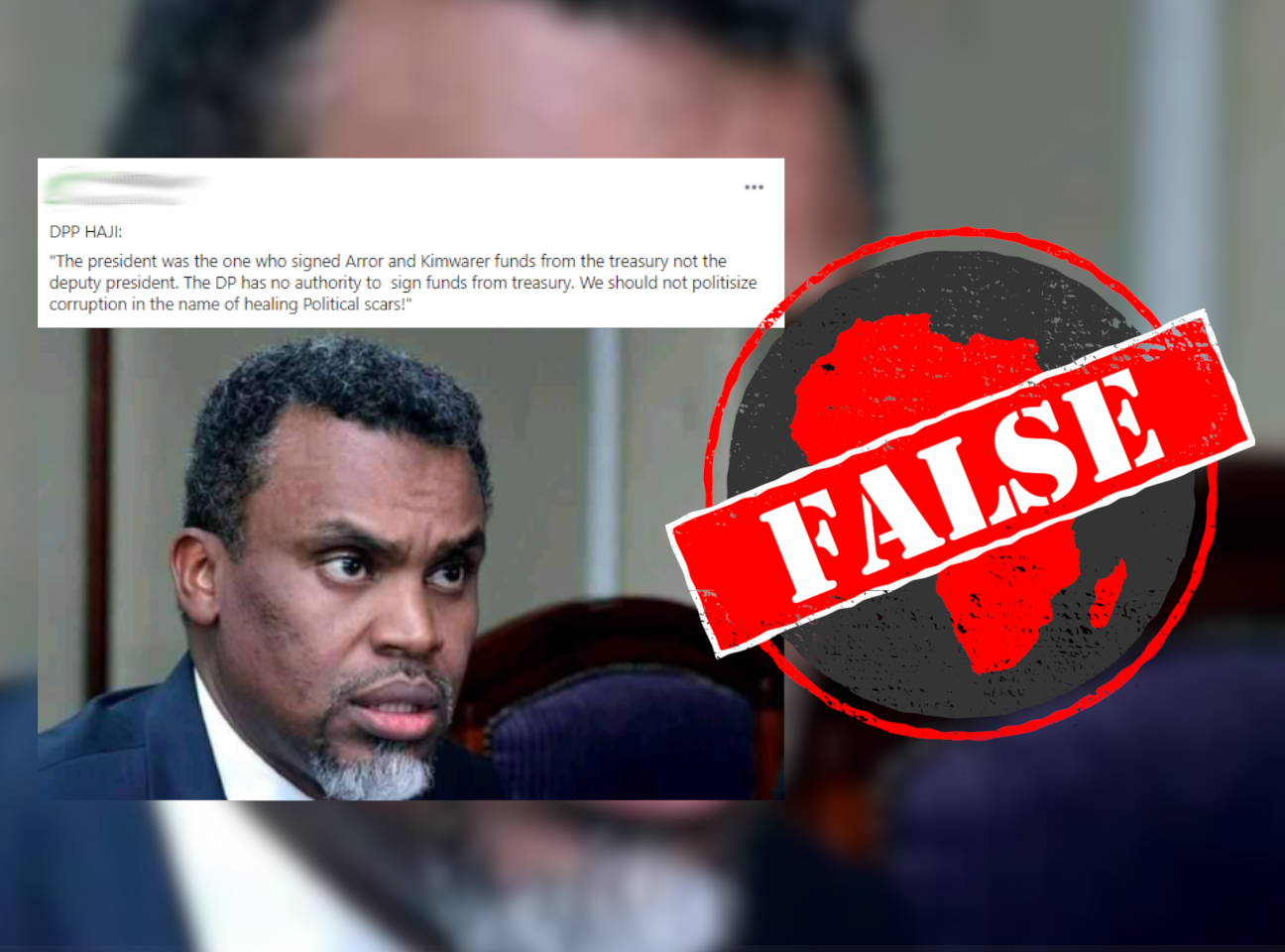A message circulating on Facebook quotes Noordin Haji, Kenya’s director of public prosecutions (DPP), as weighing in on the corruption scandal involving the construction of the Arror and Kimwarer dams.
It suggests that Haji has cleared deputy president William Ruto of any involvement in the scandal.
“The president was the one who signed Arror and Kimwarer funds from the treasury not the deputy president,” the quote reads. “The DP has no authority to sign funds from treasury. We should not politisize corruption in the name of healing Political scars!”
In 2019, Haji ordered the arrest of then-treasury cabinet secretary Henry Rotich, alongside 27 others, over the loss of billions meant for the dams’ construction.
Local media reported that Rotich and other senior officials were charged with conspiracy to defraud the government of more than KSh63 billion.
Ruto’s comment at the time, that only KSh7 billion was in question, quickly sparked a political furore.
But did the DPP really make this statement, letting Ruto off the hook?

No reports of statement
The quote has no source, and has several grammatical errors – both signs that it is probably made up. And no credible news outlet has reported that Haji said it.
In August 2021, the DPP’s office tweeted a screenshot of the message, branding it fake.
ATTENTION
— Office of The Director Of Public Prosecutions (@ODPP_KE) August 24, 2021
Kindly note that this information attributed to the DPP Noordin Haji is fake.#HakiNaUsawa pic.twitter.com/wuvXwubPMg
“ATTENTION. Kindly note that this information attributed to the DPP Noordin Haji is fake,” the tweet reads.
Republish our content for free
For publishers: what to do if your post is rated false
A fact-checker has rated your Facebook or Instagram post as “false”, “altered”, “partly false” or “missing context”. This could have serious consequences. What do you do?
Click on our guide for the steps you should follow.
Publishers guideAfrica Check teams up with Facebook
Africa Check is a partner in Meta's third-party fact-checking programme to help stop the spread of false information on social media.
The content we rate as “false” will be downgraded on Facebook and Instagram. This means fewer people will see it.
You can also help identify false information on Facebook. This guide explains how.


Add new comment